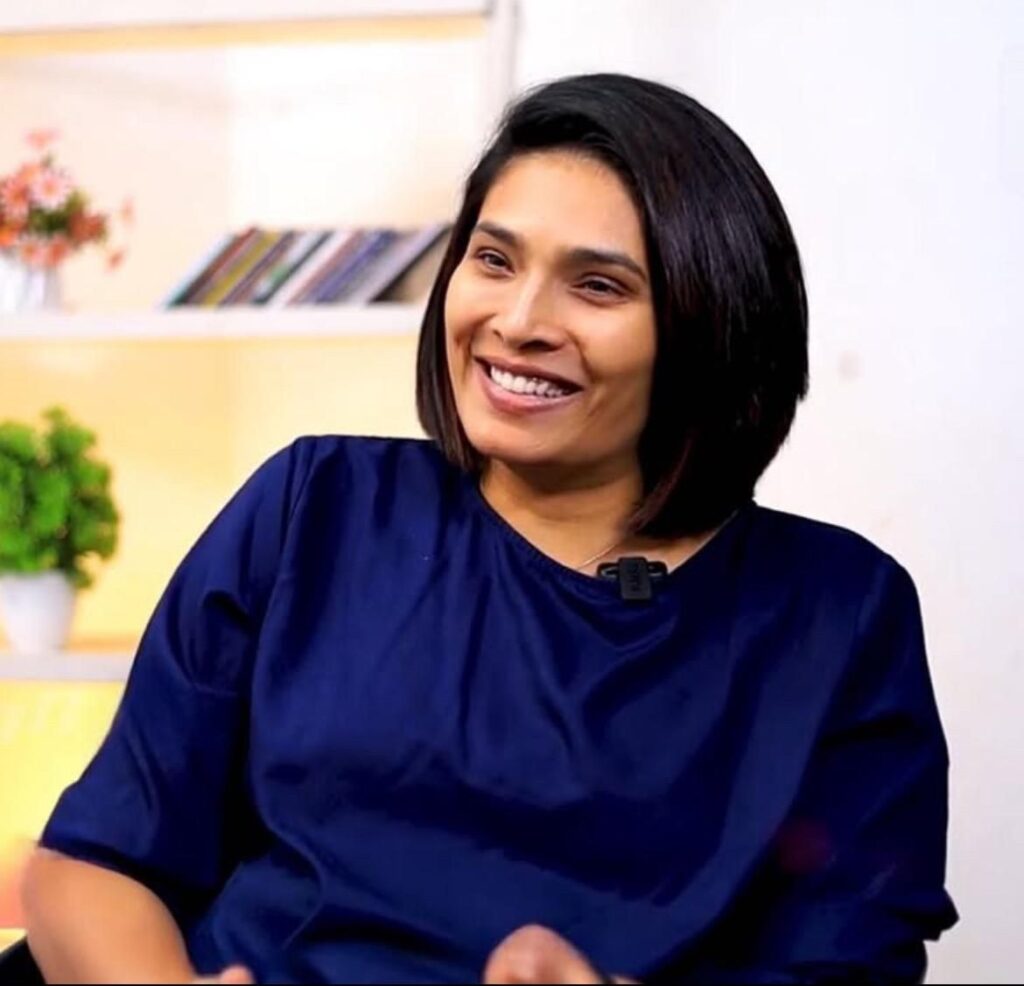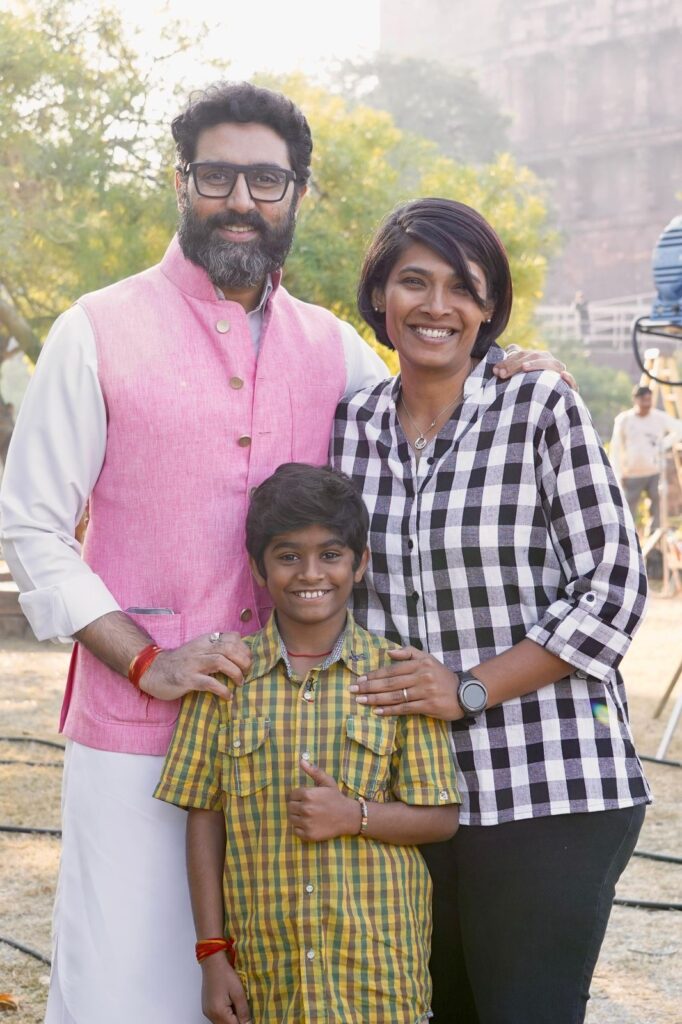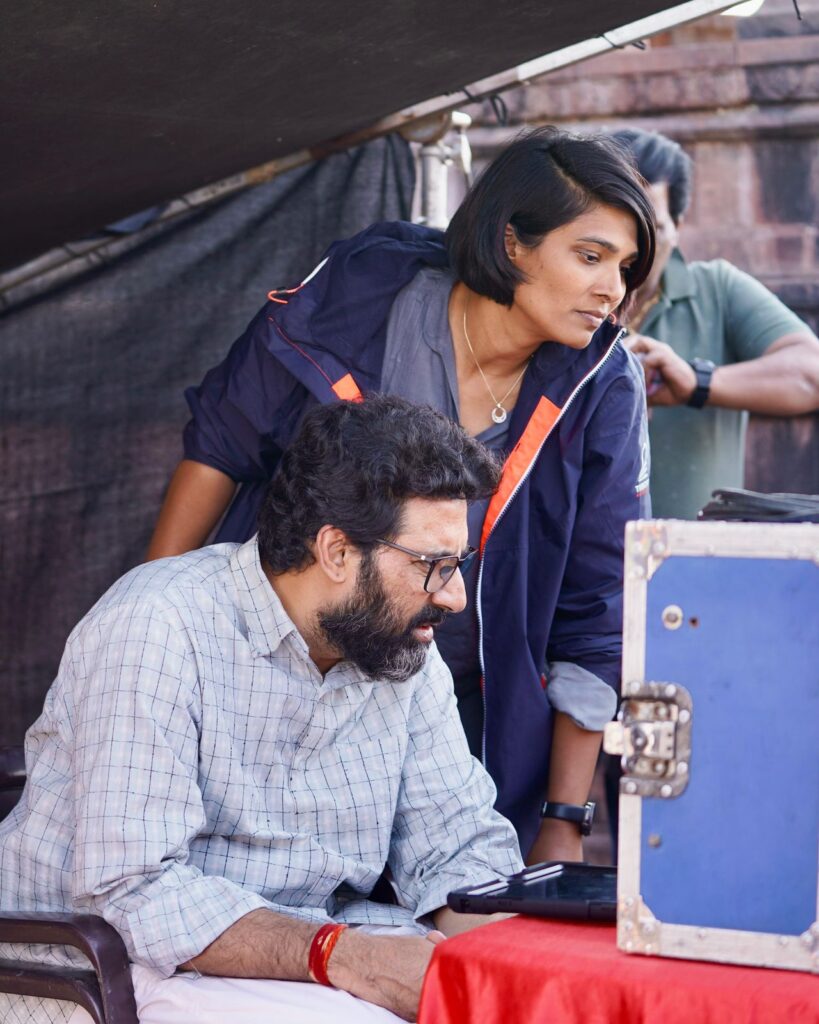From crafting the emotionally resonant character of Kaalidhar, played by Abhishek Bachchan, to navigating the challenges of emotionally charged performances with child actor David, Madhumitha reveals the heart, thought, and soul that went into every frame. Of Kaalidhar Laapata. In an exclusive conversation with The Pioneer, she further opens up about her Hindi film debut and a deeply personal journey inspired by her grandmother’s battle with dementia

Tejal Sinha
After winning hearts with her tender Tamil films, including the award-winning K.D. and the acclaimed anthology Putham Pudhu Kaalai Vidiyaadhaa, filmmaker Madhumitha is making her Hindi debut with Kaalidhar Laapata, streaming on Zee5. Known for crafting gentle, emotionally textured stories that find extraordinary meaning in ordinary people’s struggles, Madhumitha brings the same warmth and humanism to this film about a man grappling with dementia and the small, luminous moments that give life purpose.
In a time when big-budget spectacles and high-octane thrillers often dominate the conversation, Kaalidhar Laapata stands apart. It is a meditative tale of loss and rediscovery that draws on the director’s own family memories and her abiding belief that cinema can be both a mirror and a balm. In an exclusive conversation with The Pioneer, Madhumitha reflects on the inspiration behind her story, her collaboration with Abhishek Bachchan, the challenges of capturing vulnerability on screen and more.
Reflecting on the evocative title, she explained that it captures the twofold nature of being lost. “Kaalidhar Laapata is a very simple story of a man who gets lost,” she said. “And when I say ‘gets lost,’ I think it is on two layers. One is partly getting lost from your family. And the second is where you don’t know what life is about or who you are anymore.”
In the film, the protagonist lives with Lewy body dementia, sometimes unable to remember even his own name. Madhumitha shared, “Sometimes, you know, we all come across that stage in life where we are wondering, you know, where is life going? What is my purpose in life? Why am I here today?” She said this was why the title felt so fitting: “He is lost on so many levels until he finds that little boy and the life that comes along with him, which is Ballu.”
For filmmaker Madhumitha, the Hindi-language debut Kaalidhar Laapata isn’t just a poignant tale about memory, identity, and rediscovery—it’s a deeply personal story rooted in her own family.
“To be honest, Kaalidhar’s character—there are elements that I’ve taken from my grandmother because she had dementia. She had Alzheimer’s. I think my last few months with her, I got to spend quite a bit of time with her. And what I realized was that there were so many moments where she would seem extremely lucid, and she would seem like she’s back to her old self.”
One memory in particular left a mark: “I remember this very specific incident where she spoke to me almost for an hour about how she climbed a mango tree in her village,” the filmmaker recalled. “This is a lady who, when she passed away, must have been around 87 or 88. And at that age, she’s talking about when she was a 10-year-old kid.”
Yet, the unpredictable nature of dementia made the experience bittersweet. “Suddenly, for one moment, she would remember my name, and the next minute she would ask my mom if I’ve gone to school—a 40-year-old girl going to school. Can you imagine?” Madhumitha added, noting how that ebb and flow of memory informed Kaalidhar’s character. “There is no logic as to why they will remember what when.”
Madhumitha also reflected on her grandmother’s sense of unfulfilled agency, particularly as a woman of a different generation. “She said if she could do one thing, she would just cook a meal for herself the way she wanted to make it and sit and eat by herself,” she shared. “For you and me today, going into your kitchen, making something for yourself and sitting and eating is a very normal thing.” But for her grandmother, who was married at 13 and spent her life catering to others, it remained an unfulfilled wish. “Even in old age, they were also concerned about me, that they would say salt for the interest of my health. So I never got to make it the way I will it operate.”
This inspired the film’s modest but heartfelt bucket list. “It’s not about wanting to become prime minister of India or wanting to act in a movie. It was about the simple things, like I want to wear a coat. I want to eat as much biryani as I can.”
Reflecting on her journey as a storyteller across regions and languages, Madhumitha said, “Every film has its journey. I’ve made a short film in LA. I’ve worked in Tamil. I’ve worked in Telugu. Now I’ve done Hindi.” But one thing has remained constant: “If the people that come together for the film start from a place of authenticity, then the film will come out really well.”
For Madhumitha, each project, whether successful or not, is part of that same continuous learning. “There’s something new to learn in it every day. You learn what not to do, the kind of people you don’t want to work with—all of these things are learnings.” And, she added, “One thing remains consistent—that you’re a good human being through all of this. And that is most important for me.”
On balancing the heavy emotional themes in Kaalidhar Laapata with warmth, Madhumitha admitted, “Finding that balance is always a challenge.” But she hoped the film would offer a sense of calm. “Films like Kaalidhar Laapata are that breather that you want,” she said. “Where you pause for a second and take a deep breath and say, don’t worry, you got this. Life is going to be okay.”
Casting Abhishek Bachchan as the titular Kaalidhar involved intense creative discussion. “It was important that we had that sync about how both of us saw Kaalidhar,” she explained. From the disease’s portrayal to physical appearance, everything was dissected: “What kind of clothes would he wear? What kind of beard would he have? What kind of hair would he have?”

The intention, Madhumitha emphasized, was to make sure “it was Kaalidhar on screen and not Abhishek Bachchan. And he was also more particular about it than me.”
Their first meeting set the tone. “I told him the story—it wasn’t a narration, but a brief outline,” she said. “And he said, ‘I love it. When are we shooting?’ That was his personal reaction.”

Asked if she felt pressure directing an actor from Bollywood’s most iconic family, Madhumitha was pragmatic. “Putting all of those thoughts in my head will only add pressure. All I thought of was, he’s going to look great as my Kaalidhar, and he has performed very well. I don’t think anybody could have done more justice to Kaalidhar than he did.”
The film’s most emotionally taxing scene, however, involved child actor Daivik, who plays Ballu. Madhumitha described the powerful bus stop sequence where Kaalidhar and Ballu part ways. “Even in workshops, Daivik became extremely quiet. He wasn’t willing to open up about why,” she remembered. “Finally, he told me it reminded him of someone he had lost in his family.”
To preserve that emotional intensity, she kept the set atmosphere hushed. “The tears that had to come from Ballu’s eyes, the choked feeling of losing the one person who had brought happiness into his life—that had to be real.”
As audiences increasingly embrace layered, character-driven narratives, Madhumitha sees hope. “We live in exciting times today. All sorts of content are consumed.” And if Kaalidhar Laapata inspires someone to reconnect with a loved one, she feels the story has served its purpose: “If somebody picks up the phone and says, ‘Hey, we’ve not caught up in a while,’ I think the purpose is achieved.”



